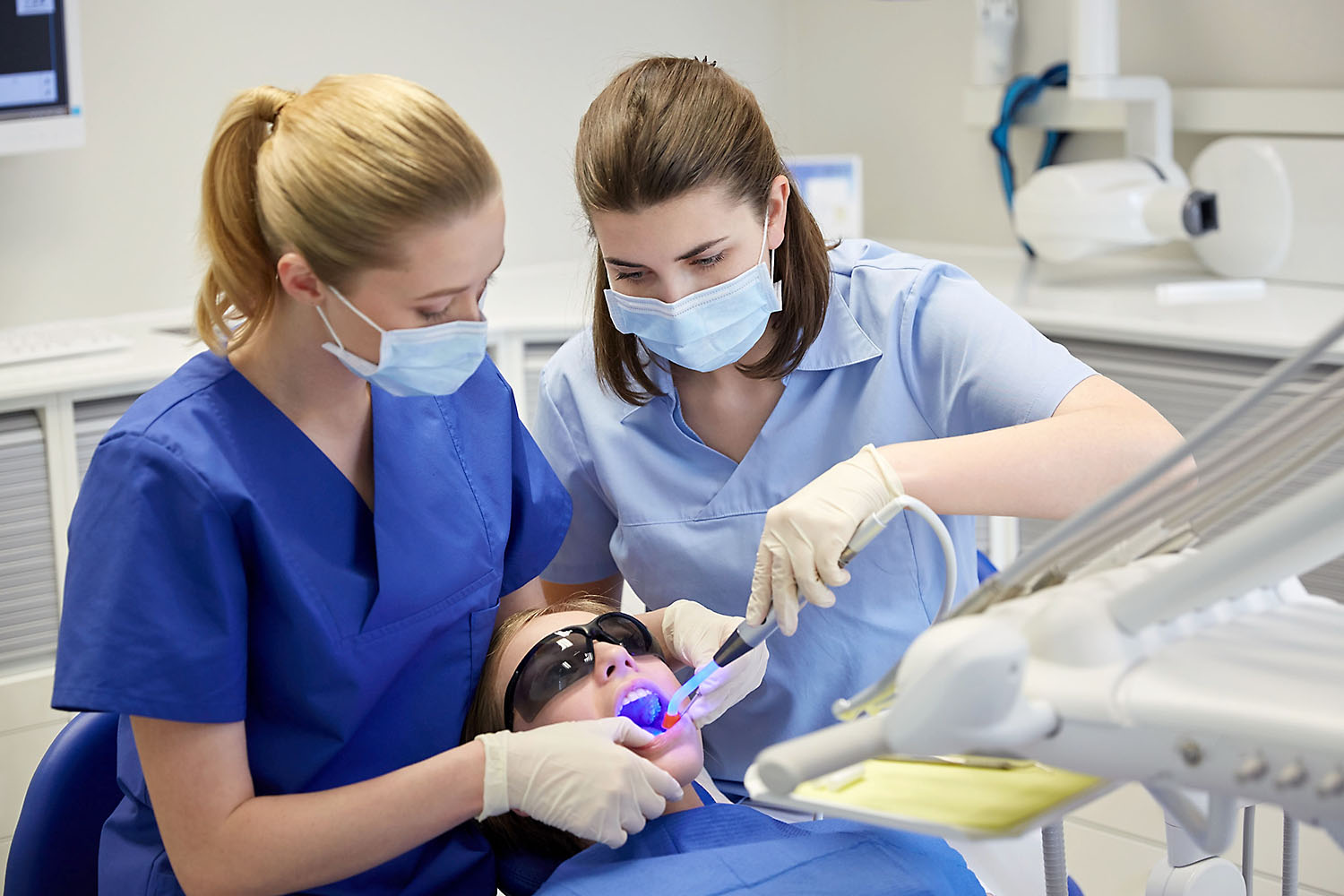Crucial Dental Care Procedures for Maintaining Healthy Teeth and Gums
Maintaining optimum dental health and wellness is important for total well-being, and understanding important dental care procedures is the very first step toward attaining this objective. Regular specialist cleansings and dental exams play a pivotal role in the early detection of prospective problems, while everyday methods such as brushing and flossing are essential for combating plaque and food bits.
Routine Dental Check-Ups
Regular oral exams are essential for maintaining optimum dental wellness and protecting against potential concerns. These appointments commonly take place every six months and serve multiple purposes, consisting of the very early discovery of dental troubles such as dental caries, periodontal disease, and oral cancer. By identifying these problems at their onset, patients can benefit from less invasive treatments and boosted results.

In addition, routine check-ups provide an opportunity for dental specialists to use customized suggestions on oral hygiene techniques, dietary choices, and way of living adjustments that can improve overall oral wellness. Developing a routine of routine exams promotes a proactive technique to dental treatment, equipping patients to organize their dental health and wellness and inevitably bring about a brighter, healthier smile. Ignoring these vital gos to can cause much more extreme issues, highlighting their importance in preventative dental care.

Expert Cleanings
A key element of preserving oral wellness is the specialist cleansing executed by an oral hygienist. These cleanings, normally recommended every 6 months, are necessary for the avoidance of dental problems such as tooth cavities and periodontal illness. Same Day Crowns. Throughout a professional cleansing, the hygienist utilizes specialized tools to eliminate plaque and tartar buildup from the teeth and along the gum tissue line, locations that regular cleaning might miss
The treatment starts with a detailed assessment of the mouth. Following this, the hygienist uses a scaler to meticulously scratch away solidified plaque. This is frequently followed by a sprucing up treatment with an abrasive toothpaste, which aids to eliminate surface area stains and smooth the enamel. Lastly, the hygienist may use a fluoride therapy to enhance the teeth and provide extra security against degeneration.
Specialist cleanings not only boost the visual appeals of your smile however additionally significantly add to overall oral wellness. They permit early detection of prospective issues, making it possible for timely treatment. By focusing on these cleansings, individuals can guarantee that their dental health routine is matched by professional care, inevitably causing healthier teeth and periodontals.
Daily Cleaning Methods
Effective day-to-day brushing strategies are vital for keeping ideal dental health and wellness. Brushing your teeth at the very least two times a day, preferably in the early morning and prior to going to bed, is crucial for removing plaque and stopping tooth cavities. Select a soft-bristled toothbrush that fits comfortably in your hand and permits very easy accessibility to all locations of your mouth.
When cleaning, hold the toothbrush at a 45-degree angle to your periodontals. This placement assists to clean not only the teeth however also the gumline, where plaque can collect. Usage mild, circular motions rather than hostile back-and-forth strokes, which can hurt the periodontals and enamel. Make right here certain to comb for at the very least 2 minutes, investing equivalent time on each quadrant of your mouth.
Don't fail to remember to comb the inner surface areas of your teeth, as well as your tongue, to remove microorganisms and freshen your breath. Developing a consistent cleaning regimen will considerably add to the long-lasting health and wellness of your teeth and gums.
Effective Flossing Methods
Flossing is a necessary component of a comprehensive dental hygiene routine, playing a critical duty in removing food bits and plaque from areas that a tooth brush can not get to. Effective flossing techniques can substantially boost the health of your teeth and periodontals, stopping dental caries and gum condition.
To begin, utilize this link about 18 inches of dental floss, winding completions around your center fingers, enabling much better control. Hold the floss tightly between your thumbs and index fingers, delicately assisting it in between your teeth with a sawing movement. Avoid breaking the floss, as this can cause gum damage.
Once the floss reaches the gum line, curve it right into a C shape against one tooth and slide it beneath the periodontal line delicately, ensuring to clean both sides of the tooth. Repeat this procedure for each tooth, making use of a tidy section of floss as you move from one tooth to the next.
It is recommended to floss at the very least daily, preferably prior to cleaning, to take full advantage of plaque elimination. Including efficient flossing strategies into your dental health regimen will add to general dental wellness, making it an essential method for preserving healthy and balanced teeth and gum tissues.
Nutritional Factors To Consider for Oral Health And Wellness
Many studies show that nutritional considerations play a crucial function in maintaining oral health and wellness and avoiding oral concerns. A healthy diet plan rich in crucial nutrients is essential for the growth and upkeep of healthy and balanced teeth and gum tissues. Key nutrients, such as calcium, vitamin, and phosphorus D, contribute significantly to the stamina of tooth enamel and the overall stability of the oral tooth cavity.
Foods high in anti-oxidants, like vegetables and fruits, boost gum health and wellness by minimizing swelling and combating oxidative tension. In addition, ample hydration is essential; water not just assists in the production of saliva, which counteracts acids and gets rid of food particles, but likewise help in maintaining a balanced dental microbiome.
Restricting these foods, along with exercising excellent dental health, is necessary for oral health. Thus, an all natural strategy that includes conscious nutritional options can dramatically contribute to the avoidance of oral issues and the promotion of total dental wellness.
Conclusion

These consultations normally happen every six months and offer several objectives, including the early detection of oral problems such as click for more info cavities, gum illness, and dental cancer cells.Throughout an examination, an oral professional carries out a detailed evaluation of the teeth, gum tissues, and bordering dental structures.Moreover, normal examinations supply a possibility for dental professionals to use tailored recommendations on dental hygiene practices, nutritional selections, and lifestyle alterations that can enhance overall dental health.In recap, keeping healthy teeth and gum tissues necessitates adherence to essential oral care procedures. Regular dental exams and professional cleansings help with very early detection of dental problems and the removal of plaque and tartar, specifically.